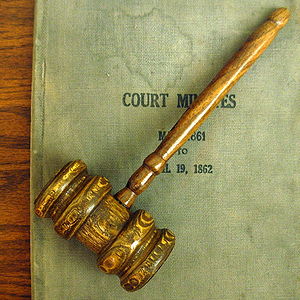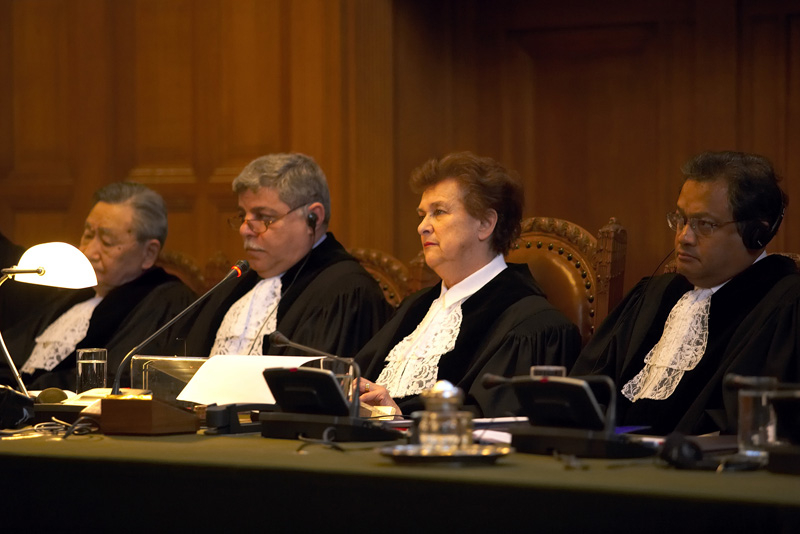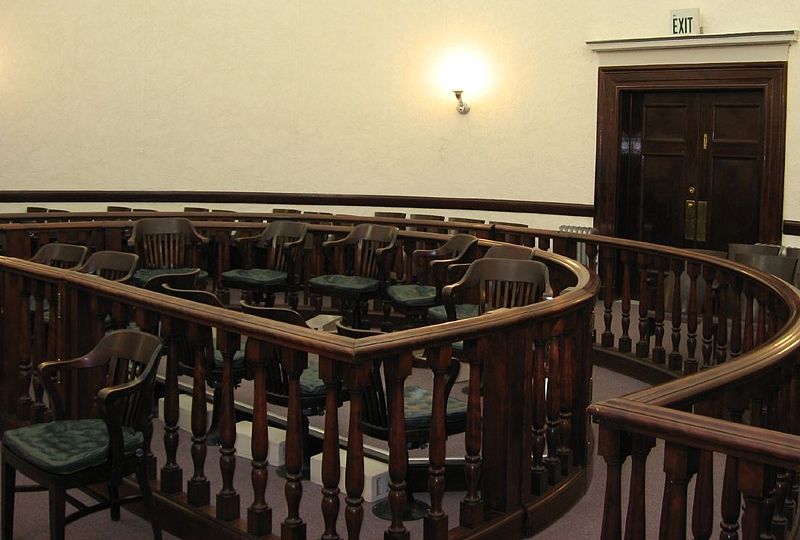{In response to some discussion on the Trayvon Martin case, I’m happy to welcome Tim Fall (who’s a a judge) back to the blog to talk about due process.}
I have the only job Jesus ever explicitly prohibited: “Judge not.” (Matthew 7:1, Luke 6:37.) Yet every day I put on a black robe (I call it my black muumuu) and sit on the bench judging.
It’s a living.
Of course, Jesus isn’t talking about judging as a profession, or exercising judgment in our day to day lives, but about judgmentalism, described by D.A. Carson as a “critical spirit, a condemning attitude.”
You’ve seen it; you know what it is–if you’re like me, you’ve done it.
It comes up a lot when a particularly heinous crime is committed, or someone famous gets
arrested. Everyone has an opinion, and the internet lets everyone else know what it is. For a lot of people, an arrest is as good as a conviction. After all, people think: ‘where there’s smoke, there’s fire–no one gets arrested unless they did something wrong!’
If this were true, we could set up a really efficient system: a police officer arrests someone and drives them to prison, tells the warden the person is guilty of a crime and the warden then just locks them up. See what I mean? No need for courtrooms, no need for judges, no one gets a lawyer, no one ever gets called for jury duty. Efficient!
Efficient, and unjust.
Soon after I became a judge in the mid-90s, a young man appeared in court wearing a jail jumpsuit, and upon hearing the charges blurted out, “That wasn’t me, it’s my brother! He did it to me again!” It turned out his brother had done it to him again. The poor guy’s brother made a habit of committing crimes and giving the police a false name, which led to this guy’s arrest because you know what name the miscreant always gave? The name of the poor guy standing in front of me in the jail jumpsuit. Fortunately for him, the court-appointed attorney got it straightened out quickly and the poor guy was set free. The brother? He was eventually picked up, as always.
Our Constitution provides everyone with the right to due process; for an arrest, that
merely means that the police only need “probable cause.” It’s a fairly low standard; if the
police have a valid reason to think a particular person committed a crime, they can arrest that person for it.
In my state, if it’s a felony, we hold a preliminary examination where the prosecutor needs
to present sufficient evidence to support a strong suspicion that the crime occurred and that this person is the one who committed it; this is a higher level of proof than needed for an arrest, but lower than for conviction. The case gets dismissed if there’s not enough evidence.
At trial, the prosecutor has to put on enough evidence to prove the case beyond a reasonable
doubt. If there is enough evidence, the jury returns a guilty verdict. If not, then not guilty. I’ve had both types of verdicts in my courtroom, and it’s not a bad system, especially when you consider that there are places in this world where nothing even remotely resembling due process exists.
In some countries, that model of unjust efficiency I set out above is the norm – the government just arrests people, puts them in prison, and keeps them there. So why do people in our society not cherish our Constitutional rights of due process?
Why do people rush to judgment and call out for justice before anyone has examined the evidence, before the accused person is even given a chance to be heard?
I think people don’t trust the system to work because they don’t know how it works. And if they aren’t familiar with the system then they don’t know that it does work. But what about those times people do get away with committing crimes, hurting others, ruining lives? This might be the deeper issue. We know that sometimes people literally get away with murder. How can we trust a system that does not bring every single criminal to justice?
If that’s what you want from a criminal justice system, you’ll be disappointed.
That perfect system doesn’t exist in any government here on earth. We have some that work fairly well considering that everyone involved is a fallible human being. But no system is perfect.
The good news, though, is that there is one infallible and perfect judge, “the Judge of all the
earth” as Abraham put it. (Genesis 18:25), and I find that when I am tempted to condemn or rush to judgment, trusting God tends to put a damper on the desire to be judgmental.
Rushing to judgment is dangerous. I’d rather rush to the Judge.
















